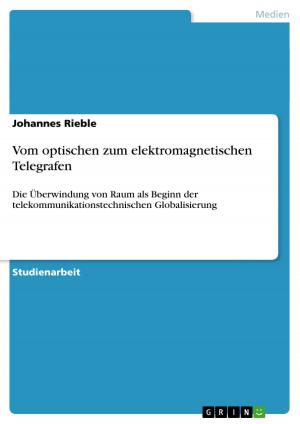The Usage of Idioms in the Language of German EFL-Students. A Corpus Study
Nonfiction, Entertainment, Drama, Anthologies| Author: | Marc Felsbrecher | ISBN: | 9783668195196 |
| Publisher: | GRIN Verlag | Publication: | April 13, 2016 |
| Imprint: | GRIN Verlag | Language: | English |
| Author: | Marc Felsbrecher |
| ISBN: | 9783668195196 |
| Publisher: | GRIN Verlag |
| Publication: | April 13, 2016 |
| Imprint: | GRIN Verlag |
| Language: | English |
Seminar paper from the year 2016 in the subject English Language and Literature Studies - Linguistics, grade: 2,3, , language: English, abstract: Whereas a lot of research has been done on the description, comprehension and acquisition process of idioms, the field of idiom teaching to English second language speakers has remained largely undiscussed. Therefore, the aim of this short corpus study is to investigate the usage of idioms in the language of nonnative English speakers, especially in the language production of German English second language learners ('ESL-Students'). It is argued that ESL-Students in Germany do not use idiomatic language in their production of English, mainly due to the circumstance that idioms are not explicitly taught in the English foreign language classroom (EFL-classroom) and because the language input in German English teaching classes is too artificial to pick them up unintentionally. The first part of this paper will contain a definition of what idioms and idiomatic language are and shortly address the processes of idiom processing, comprehension and acquisition. A second part will contain a corpus study that will shortly examine the usage of idioms by ESL-Students in contrast to the idiom usage of native speakers in quantitative as well as in qualitative terms. The two corpora used will be the ICLE-German ('ICLE-GE') and the LOCNESS corpus. The list of idioms that the corpora are examined for is taken from English second language teaching textbooks currently used in German English classes. The final part of this paper will discuss the question whether the teaching of idioms in German ESL-classrooms is successful (correct and rich usage of idioms by ESL-Students, almost native proficiency) or not (idiom usage in ESL-Students incorrect or low) and make suggestions for effective idiom teaching in the EFL-classroom.
Seminar paper from the year 2016 in the subject English Language and Literature Studies - Linguistics, grade: 2,3, , language: English, abstract: Whereas a lot of research has been done on the description, comprehension and acquisition process of idioms, the field of idiom teaching to English second language speakers has remained largely undiscussed. Therefore, the aim of this short corpus study is to investigate the usage of idioms in the language of nonnative English speakers, especially in the language production of German English second language learners ('ESL-Students'). It is argued that ESL-Students in Germany do not use idiomatic language in their production of English, mainly due to the circumstance that idioms are not explicitly taught in the English foreign language classroom (EFL-classroom) and because the language input in German English teaching classes is too artificial to pick them up unintentionally. The first part of this paper will contain a definition of what idioms and idiomatic language are and shortly address the processes of idiom processing, comprehension and acquisition. A second part will contain a corpus study that will shortly examine the usage of idioms by ESL-Students in contrast to the idiom usage of native speakers in quantitative as well as in qualitative terms. The two corpora used will be the ICLE-German ('ICLE-GE') and the LOCNESS corpus. The list of idioms that the corpora are examined for is taken from English second language teaching textbooks currently used in German English classes. The final part of this paper will discuss the question whether the teaching of idioms in German ESL-classrooms is successful (correct and rich usage of idioms by ESL-Students, almost native proficiency) or not (idiom usage in ESL-Students incorrect or low) and make suggestions for effective idiom teaching in the EFL-classroom.















